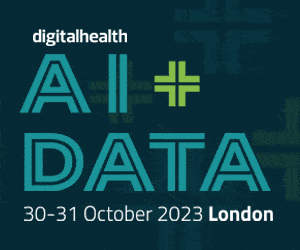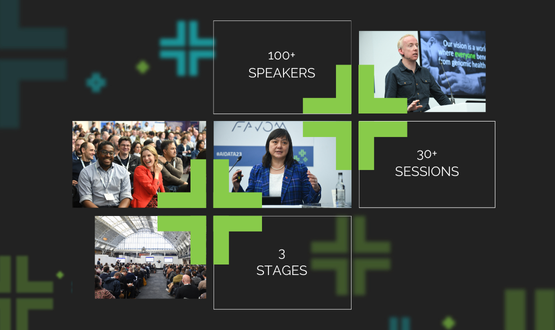How the ‘fragmented’ NHS can create the conditions for AI to thrive
- 12 October 2023

What’s holding AI back? Digital Health asked Robin Carpenter, AI ethics and governance lead at the AI Centre for Valued Based Healthcare at King’s College London, a speaker at our upcoming AI and Data event, to identify the brakes on progress and suggest solutions
How can AI unleash its potential to transform the NHS?
To some AI is a source of hope for our healthcare system, which is grappling with unprecedented challenges right now. Due to this, the government has committed to several funding packages, such as £21 million to speed up AI deployment. It is hoped that deploying these products will help improve the wait-times experienced by patients and pressures felt by staff.
However, to realise AI’s potential across the NHS, we must address its fragmented nature. This involves creating a level playing field of technical infrastructure, providing appropriate support, and implementing better feedback mechanisms.
How can healthcare efficiency be enhanced through AI?
The healthcare infrastructure is diverse, with different entities operating under the same umbrella. AI can do a lot to support the NHS, but the current ecosystem holds many challenges. For example, deploying AI in one hospital does not guarantee smooth implementation in another. You need the right technical infrastructure, the right skill sets, and the right buy-in from staff and patients. That is a national challenge.
The local challenge for those developing AI is building algorithms that the NHS needs. You do this by developing it within a collaborative framework that is legally compliant, technically robust, and ethically responsible. I plan on discussing the part AI principles can play in this at the AI and Data conference at the end of this month.
How can policy on AI be translated into practice in the NHS?
While the government has set policies to create a more digitally enhanced NHS, the challenge lies in translating this ambition into reality. Assessing evidence of how principles have been applied is essential. Fostering a culture of ethical practice with good governance is crucial, as is updating guidance and regulation, and implementing comprehensive monitoring mechanisms. We need to do all of this to ensure effective AI integration in healthcare.

What strategies can be employed to navigate the future of clinical AI in the NHS?
To navigate the future of AI in healthcare, we must coordinate better. That means better governance, better communication, and better feedback loops.
How can we achieve real transformational change through AI deployment in the NHS?
Real transformational change in the NHS through AI deployment requires a combination of factors. Public debates are needed to determine what the public wants and expects when it comes to AI in healthcare. Rather than assuming that the public wants AI in every aspect of their care, careful deliberation is needed to determine how AI should be developed and where it is best placed.
Updating guidance and regulation, such as the coming medical device regulation changes to appropriately oversee AI, is essential.
Lastly, comprehensive monitoring mechanisms should be implemented to gather data on why AI thrives in certain hospitals and not in others. This data can help target changes and reduce disparities in AI-enabled care delivery. By fostering equitable innovation and safeguarding the integrity of the healthcare system, we can work towards AI that benefits the patients it serves.
Robin Carpenter is AI ethics and governance lead at the AI Centre for Valued Based Healthcare. He will be speaking at AI and Data, 30-31 October 2023, a new event by Digital Health, the organisers of the market-leading Rewired and Summer Schools. The new event includes a wide-ranging programme on two stages: AI and Analytics, and Data and Research.
All sessions are CPD accredited. AI and Data is free for the NHS, public sector, start-ups, charities, education and research. Commercial tickets from £275+VAT. Find out more and register here





